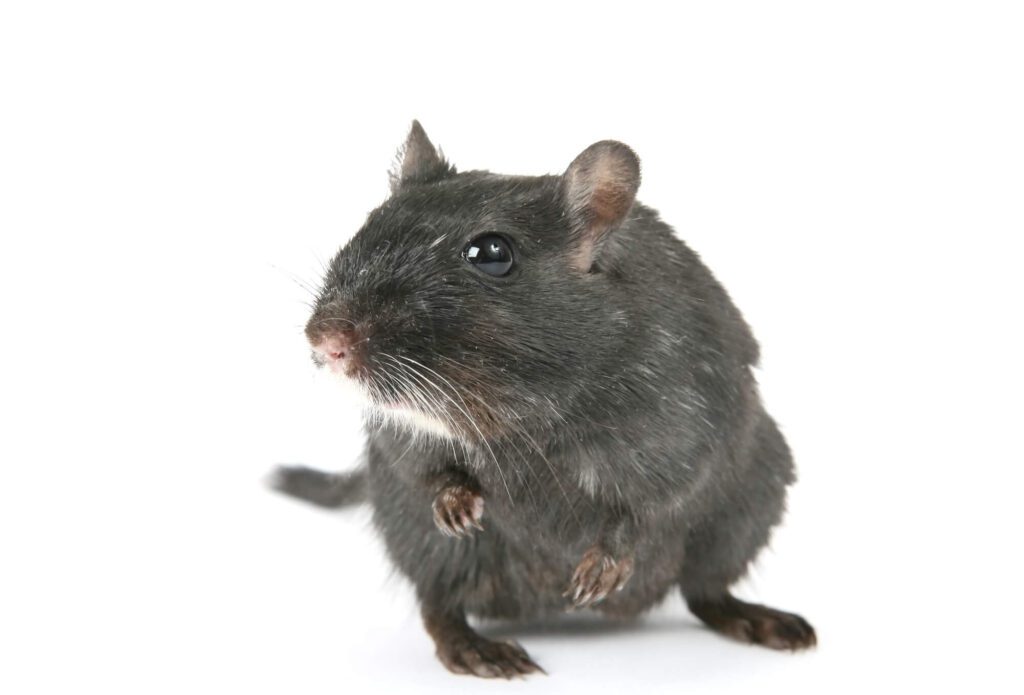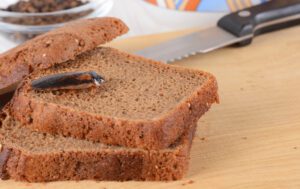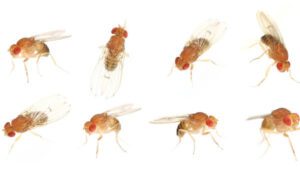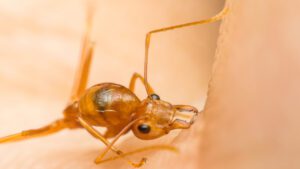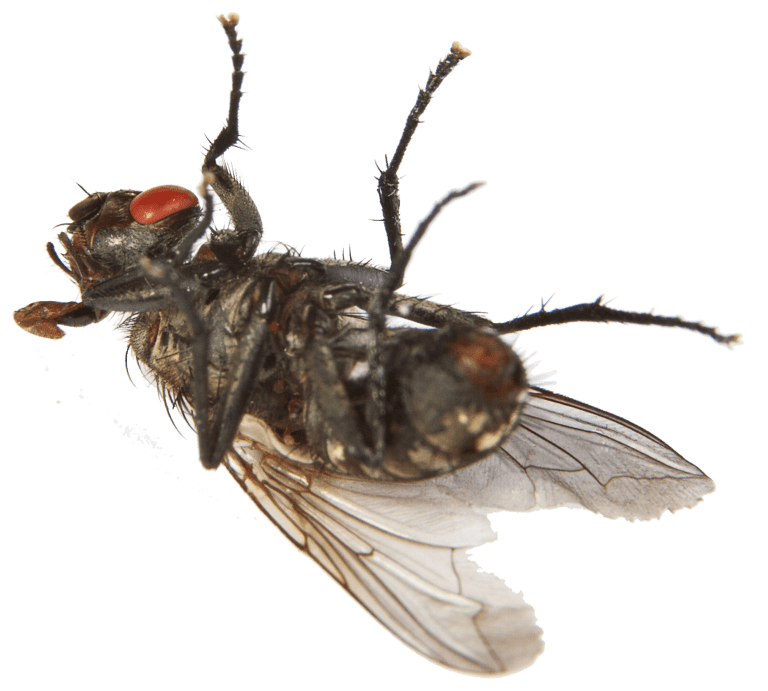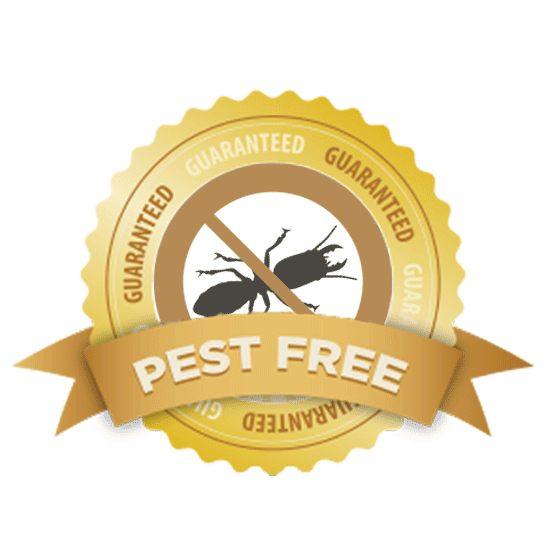Fall in Florida is a great time to head outdoors and enjoy the crisp, cool air. Indoors, it’s an entirely different story.
It’s when rodents are more likely to invade your home. Cooler temperatures, food scarcity, and increased breeding rates are to blame.
Florida Rodents are both dangerous and destructive. They carry a host of diseases and can cause structural damage to buildings.
There’s no need to panic – take action instead! Our guide will help you prevent rodents from taking over your property.
To keep your home rodent free, here’s what you need to know:
- How to identify different rodent types.
- How to recognize when they’re becoming a problem.
- How to stop them dead in their tracks.
Florida’s Most Common Rodents
1. House Mouse
The house mouse is one of the most common rodent types found in Florida.
House mice typically live in bushes, fields, and in yards. After they make their way indoors, they live behind walls, crawl spaces, cabinets, and furniture.
House mice prefer grain and seeds. If other tasty options are available, they’ll gravitate toward sugary and fatty foods, such as chocolate, bacon and nut butter.
The house mouse is a quiet rodent and often goes unnoticed inside homes. Similar to other rodent types, house mice are nocturnal. Spotting one during the day is a sign of a major infestation.
Adults weigh in at about 1/2 to 1 ounce, with a thin tail and body of equal length. House mice are grayish-brown in color, with large black eyes. They breed year-round, which means their populations can increase exponentially.
2. Norway Rat
Norway rats prefer to live near water. Also known as sewer rats, they are widely distributed throughout the United States. You can also find them nesting along Florida’s coasts, lakes, and canals.
They generally prefer fresh food but will also eat whatever is available to them. If garbage is left out, they will thrive. In search of food, Norway rats will migrate indoors.
In appearance, Norway rats are heavy-set and mostly brown with a white underbelly. Excluding their long tail, they can grow up to 9 1/2 inches long. After a few months, they begin to breed. In any given year, the females can produce between 48 – 264 offspring.
Norway rats can literally chew their way through almost anything, including concrete. Their constant chewing and gnawing can result in a significant amount of damage to your property.
3. Roof rat
Roof rats are known to be one of the worst types of rats in Florida. September to March is Florida’s citrus season, and it’s when they multiply in numbers. They are attracted to lush landscapes and typically build their nests in fruit trees.
Roof rats like to feed in hiding. They nest in ceilings, roof spaces, and attics to feed on fresh fruit or insects. Roof rats also consume meat, grain, vegetables, nuts, seeds, snails, and insects.
In appearance, roof rats are either brown or black. Slighter than Norway rats, they can be recognized by their long tails, large eyes, and ears.
Different Rodent Types: Similar Risks and Dangers
Rodents carry over 35 diseases, including bubonic plague, typhus, spirochetal jaundice, and rat-bite fever. Diseases can be transmitted directly through rodent bites, saliva, urine, droppings, or hair. Incessant chewing on wires can result in electrical fires, in addition to significant structural and foundational damage.
Signs of Rodent Infestation
Rodents are nocturnal. Unless the infestation is severe, you’re unlikely to see or hear them scratching during the day. It’s important to remain on guard for the following signs of rodent infestation.
- Scratching sounds coming from your walls, floor or attic. If you hear it during the day, chances are the problem is severe.
- Droppings in drawers, pantries, or cupboards. Different sizes of feces indicate multiple rodent types.
- Shredded fabric, paper or nesting material found around your property.
- Stale smells that are emanating from your walls.
- Gnawed wires and wood around your property.
- Holes chewed through your walls and floors.
- Smudge or rub marks on your walls.
Trapping Rodents: Dos and Don’ts
Although trapping mice and rats involves a similar process, there are a few key differences to keep in mind.
- Don’t use a mouse trap for rats. They are way too small.
- Do place traps against a wall or other areas where they congregate.
- Don’t use poison inside traps. It’s harmful to your health and also ineffective.
- Do remain patient. It can take a minimum of a few days for a rat to approach a trap.
- Don’t set traps in an outdoor space where it’s easy for wild animals to get trapped inside.
- Do use gloves or tools when setting traps. Rodents are repelled by human scent. Using your bare hands will prevent rats from approaching.
- Do use the right bait. Mice prefer peanut butter, chocolate, oats, cotton or string. Rats gravitate to fruits, vegetables, peanut butter, grains or meat.
- Don’t place traps in areas where pets or children play.
- Do place traps in multiple locations to increase your odds of catching rodents.
- Don’t leave garbage in a loosely fitted trash can.
- Do remove rodent nests and piles from your property.
- Don’t leave holes (inside or outside) unsealed or unpatched.
How to Effectively Remove Rodents from Your Property
If Florida rodents have taken over your property, you’re not alone. There are steps you can take to recognize the signs of infestation and to control the problem.
Be careful when taking matters into your own hands. Finding and removing rodents is a risky endeavor. If you want a safe and long-term solution, seek out professional help.
A pest management professional can safely remove rodents from your home or business. If you’re in need of expert rodent removal, contact us. We’re here to help.

